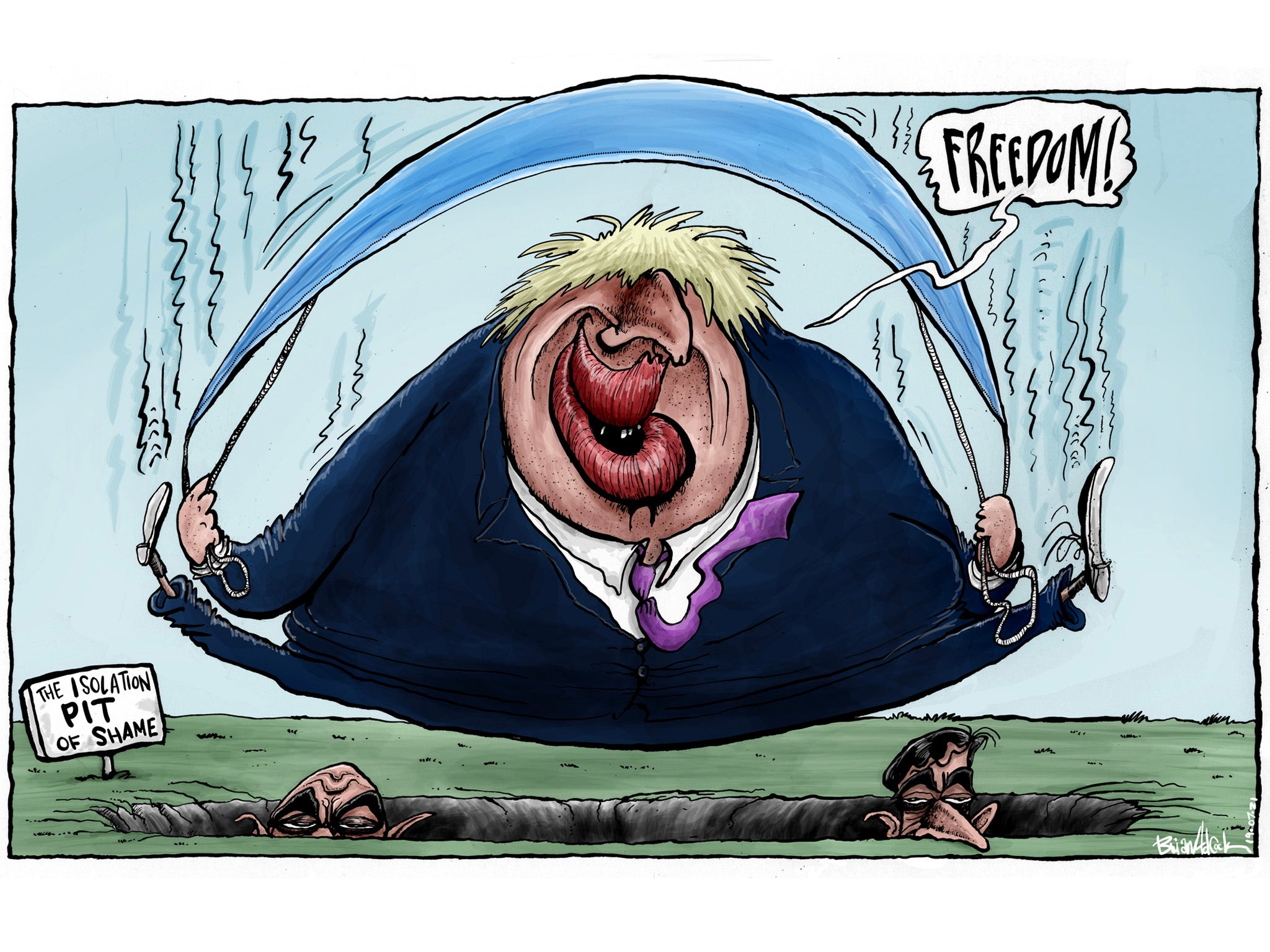The tragedy has turned to farce. The damage brought by the pandemic to families and the government’s uneven response to it has been a tragedy. What should have been the substantive reopening of the economy has become a farce.
Until a few days ago, businesses had hoped, reasonably enough, that the guidance from the government would be sustained that they could, with a few exceptions, resume normal activities. Then the explosion of new cases caught on the NHS Track and Trace app meant that many of their people were “pinged” and told to self-isolate. The absurd situation arose that while they might be allowed to open things up, they did not have the staff to do so. More than half a million people were pinged in the first week of July.
Then Sajid Javid tested positive for Covid, despite having had both jabs of the vaccine. Unsurprisingly he had been in close contact with both Boris Johnson and Rishi Sunak – they all were at a cabinet meeting on Friday – which should have required them both to self-isolate. But there was a get-out clause: the pilot scheme, whereby if people were tested every day and were clear, they did not need to isolate.
A few hours after committing to that scheme, there was a U-turn. Fearful perhaps of “the one rule for us and another for the rest of you” fallout, the prime minister confirmed that both he and the chancellor would self-isolate. The Labour leader Sir Keir Starmer said the government was in “chaos” at a time when it needed to maintain public confidence.
It is hard to disagree with that sentiment. Most people accept that there are difficult decisions to be made about the pace of reopening the economy, the details as to what should be permitted and what should not, and that there is no point in having rules if they do not command widespread support.
There is a good, if worrying, example of that last point on the wearing of face coverings on the London Underground. Government policy is that masks are not compulsory from Monday onwards, though wearing is advised on busy services. The London mayor, Sadiq Kahn, however maintains they must be worn. But as anyone who has travelled in the past few days on the Underground will testify, in practice a large minority of travellers do not wear them, or drop them below their nose. In practice, the rule is unenforceable.
There has been a similar reaction to the track and trace app. As more and more people were pinged, more and more of them simply deleted the app. One-third of those aged 18-24 had already deleted the app last week. Government policy has achieved exactly the opposite effect from what was intended.
So what is to be done? Former prime minister Tony Blair has one answer. This is to substitute daily testing for self-isolation for double-vaccinated people pinged by track and trace – in effect, what the prime minister and the chancellor were originally planning to do. Whether that is practicable, given that so many people are simply deleting the app, is questionable. But his broader point is worth serious consideration. It is that the government’s strategy for calculating the risks of removing restriction should be “based on the distinction between vaccinated and unvaccinated people”. People able to prove their immune status should be given greater freedoms.
This raises a difficult issue: the extent to which there should be a two-tier society. This is of course a global matter and different countries will chose different approaches. In France, President Macron has plans for mandatory vaccination of health workers and to make members of the public prove they are Covid-free in order to enter places such as bars, restaurants and cinemas. This has run into widespread opposition. However, it is reasonable in the months ahead to expect a standard good-practice model to develop, rather in the way that road-safety measures have spread internationally, with countries experimenting with different ideas and then other adopting those that work best.
But no policies, however well-constructed, will be successful if they don’t pass the test of common sense. At best the approach of this government has been uneven. At worst it has been a shambles – or a farce.




Join our commenting forum
Join thought-provoking conversations, follow other Independent readers and see their replies
Comments